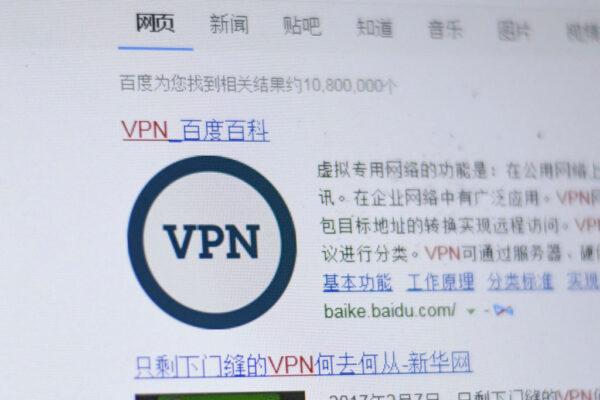Free Speech Advocates Assert VPN Fines in Brazil Spark New Internet Battle
Brazil is enforcing an $8,900 per day fine for individuals attempting to evade the ban on Musk’s X by utilizing VPN software to conceal their location.
The crackdown on Elon Musk’s social media platform X in Brazil, with penalties for VPN use, underscores a potential clash between internet freedom and regulation, as voiced by advocates for free speech and privacy.
The judge imposed fines of $8,900 daily for anyone caught evading the ban using VPNs (virtual private networks), which enable users to browse the internet as if in a different country.
Brazil lacks sophisticated censorship infrastructure like China or Russia, and monitoring VPN usage remains intricate, but experts suggest that this move indicates a higher level of digital enforcement that could inspire similar measures in other countries.
Following the introduction of the substantial penalty, equivalent to almost a year’s income for the average middle-class Brazilian, there has been a noted decline in attempts to access X.
Circumvention Via VPN
Although some Brazilian lawmakers continue to use X despite the ban, it is uncertain if they are utilizing VPNs.
Other entities, such as Brazil’s National Association of Journalists (ANJ), raised concerns on Facebook about journalists no longer having access to news reports from various sources, both domestic and international.
A representative from the U.S. non-profit Unredacted, offering free services to aid individuals in evading censorship, informed The Epoch Times that the responsibility to enforce bans rests with Brazilian telecom companies and internet service providers (ISPs).
Thus far, there have been no reports in Brazilian media about individuals or businesses being notified by Brazil’s National Telecommunications Agency (Anatel) regarding VPN usage.
He mentioned that in the instance of Brazil blocking X, it’s not always the case that the government is aware of a person’s VPN usage.
Fortuna explained that Brazil blocks X through DNS (Domain Name System) and IP (Internet Protocol) blocking. DNS blocking prevents locating the website, while IP blocking halts all traffic to the site’s server, rendering it completely inaccessible.
The Unredacted representative remarked that surveillance of VPN usage relies on whether telecom firms or ISPs monitor and report it to the government, yet it remains uncertain if this is occurring.
“Subversion of their censorship is now penalizable. It appears likely that they may explore ways to detect VPN use to bypass the block, whether through technical or non-technical means,” he remarked.

Elon Musk speaks at an AI conference in Beverly Hills, Calif., on May 6, 2024. Apu Gomes/Getty Images
He added that in nations like China, where telecoms have close ties with the government, VPN monitoring typically occurs automatically, or informal agreements may grant the government access to communications infrastructure.
“Countries like China can indeed monitor VPN usage domestically and block it on a large scale currently,” the representative stated.
He noted that other countries could draw lessons from Brazil’s actions. “This information may serve as a blueprint or provide insights on implementing their own content filtering mechanisms.”

Supporters of former Brazilian President Jair Bolsonaro hold a sign thanking X social media platform owner Elon Musk, during an Independence Day rally in São Paulo, Brazil, on Sept. 7, 2024. Nelson Almeida/AFP via Getty Images
Free Speech
X is restricted in countries with severe human rights limitations such as China, Russia, North Korea, Turkmenistan, Myanmar, Iran, and Pakistan.
Toby Young, founder and general secretary of The Free Speech Union in Britain dedicated to safeguarding free speech, conveyed via email to The Epoch Times that VPNs could potentially become a new arena for internet freedom and regulation.
Observing the passing of the Online Safety Act in October 2023 by British lawmakers, which controversially regulates online spaces and incentivizes content removal, Young stated, “I wouldn’t be surprised if this government makes using VPNs unlawful.”
The U.S.-based legal advocacy organization Alliance Defending Freedom (ADF) International cautioned that Brazilian authorities have instilled “one of the most repressive cultures of censorship in the Western Hemisphere—potentially spreading through the West.”
“Heavy-handed government censors will exploit any available tool to suppress speech—and Brazil’s action of fining people for VPN usage to access disfavored platforms is a stark example of this,” stated ADF’s senior vice president of corporate engagement, Jeremy Tedesco, in an email to The Epoch Times. “This underscores the endless efforts by censors to limit our vital free speech rights.”

The screen of a laptop with ‘VPN’ written in the search field of the Chinese search engine Baidu, on March 30, 2018. Fred Dufour/AFP via Getty Images
Complexity of VPN Tracking
Laura Tyrylyte, head of public relations at Nord Security (NordVPN), conveyed via email to The Epoch Times that tracking VPN usage to identify individuals accessing banned platforms presents a challenge.
“Similar incidents happen in regions with stricter internet restrictions; however, enforcing such bans can be inconsistent and intricate,” she remarked, urging users to exercise caution, adhere to local regulations, and “understand the implications on either side.”
Tyrylyte pointed out that VPNs typically safeguard user activity and origin, making it challenging for authorities to pinpoint specific users unless there are vulnerabilities in the VPN service itself.
“This challenge complicates the task of locating and penalizing individuals who utilize VPNs,” Tyrylyte noted. “We view governmental efforts to ban specific applications as dubious because they restrict people’s right to make autonomous choices.”
Tyrylyte acknowledged that the fines introduced by Brazil for VPN usage have led to hesitancy among users.
“This scenario not only impacts individuals’ decisions regarding VPN use but also carries broader implications for VPN companies operating in the region,” she stated.
The Epoch Times reached out to Brazil’s Supreme Court and Anatel for comment.





